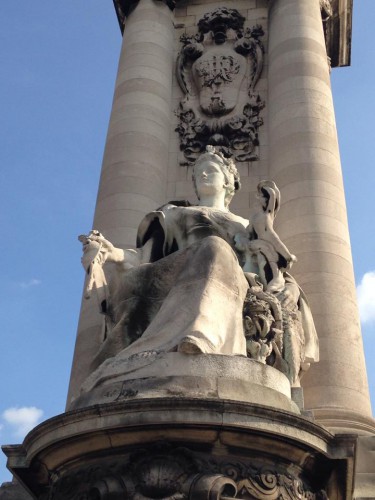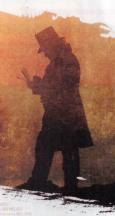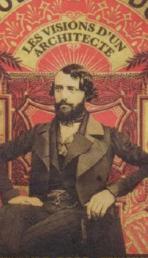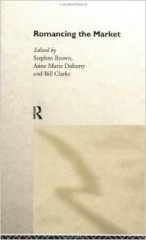mardi, 21 octobre 2014
Etymologie - Romantique #2

Crédits photographiques Elie Mehdi
Extrait de Romancing the Market, Brown, Doherty & Clarke, 1998, Routledge :
p.1
Two hundred years ago, a brace of young poets, William Wordsworth and Samuel Taylor Coleridge, scandalised polite society when they published the first edition of their poetic manifesto, Lyrical Ballads (Brett and Jones 1991). Inspired, in part, by the emancipatory euphoria that accompanied the unfurling of the French Revolution, and containing such never-to-be-forgotten (once-learnt-by-rote) classics as Tintern Abbey and The Rime of the Ancient Mariner, Lyrical Ballads ushered in a whole new era of Western culture, commonly known as romanticism or the romantic movement (Day 1996).
True, Wordsworth and Coleridge didn't actually employ the term 'romantic' (Furst 1971). The word and its cognates, what is more, were in widespread use prior to 1798 (Sanders, 1996). Indeed, the originality of Lyrical Ballads has also been called into question, as has the extent of the controversy surrounding its publication (Ashton 1996).Nevertheless, it is generally acknowledged that, thankgs in no small part to Wordsworth and Coleridge, the dog days of the eighteenth century witnessed a revolution in aesthetics, in sensibility, in thought. Not only did this represent, as Berlin (1991: 209) rightly records, 'the largest shift in European consciousness since the Reformation', but romanticism is still with us in the shape of our own great '-ism', our -ism in excelsis, the nulli secundus of -isms, postmodernism (Elam 1992; Livingston 1997 ; Readings and Schaber 1993).
p.2
The basic problem with -isms, of cours, is isn't (Brown 1995). That is to say, when it comes to -isms there isn't a single, satisfactory, all-encompassing, universally agreed definition, or even agreement on the fact that there isn't a single, satisfactory, all-encompassing, universally agreed definition of the -ism in question.
Whether it be realism, relativism, conservatism, liberalism, idealism, empiricism, communism, capitalism, fscism, feminism, gnosticism, aestheticism, asceticism, athleticism, mysticism, mesmerism, masochism, modernism, marxism, malapropism or any othe '-ism' that those mad for macaronicism, liable to lexiphanicism or smitten by sesquipedalianism are inclined to conjugate, the only thing that everyone knows for certain is that there is no certainty about the thing everyone 'knows". The ism isn't.
The same is true for romanticism, a subject which has been subject to all manner of competing definitions ranging from Rousseau's 'return to nature", though Pater's 'the addition of strangeness to beauty', to Phelps's 'sentimental melancholy' (see Furst 1971). How, for that matter, can we possibly forget Goethe's contention that 'romanticism is disease' (young Werther has a lot to be sorrowful for), Ker's suggestion that it represents 'the fairy way of writing' (not in this neck of the woods, buster !), and Fairchild's cryptic confabulation that romanticism comprises 'a desire to find the infinite within the finite, to effect a synthesis of the real and the unreal, the expression in art of what in theology would be called pantheistic enthusiasm' (keep taking the tables, sunshine, or the laudanum at least) ?
Aptly described as 'baffingly vague and used in an appallingly large number of different ways in different contexts' (Gray 1992: 251), romanticism is degined in The Oxford Companion to English Literature as :
A literary movement, and profound shift in sensibility, which took place in Britain and throughout Europe... Intellectually it marked a violent reaction to the Enlightenment. Politically it was inspired by the revolutions in America and France... Emotionnaly it expressed an extreme assertion of the self and the value of individual experience together with the sense of the infinite and transcendental... The stylistic keynote of romanticism is intensity, and its watchword is 'imagination".
(Drabble 1995: 853)
_ _ _
Contributors are Eric J. Arnould, Russel W. Belk, Stephen Brown, Bill Clarke, Anne Marie Doherty, Benoît Heilbrunn, Morris B. Holbrook, Christian Jantzen, Pauline Maclaran, Andrew McAuley, Per Ostergaard, Cele Otnes, Paul Power, Linda L. Price, Barbara B. Stern, Lorna Stevens, Craig J. Thompson, Robin Wensley
_ _ _
Ashton, R. (1996), The Life of Samuel Taylor Coleridge, Oxford: Blackwell.
Berlin, I. (1991), 'The apotheosis of the romantic will: the revolt against the myth of an ideal world', in I. Berlin (ed.), The Crooked Timber of Humanity: Chapters in the History of Ideas, London: Collins, 207-37.
Brett, R.L. and Jones, A.R. (1991), 'Introduction', in W. Wordsworth and S.T. Coleridge, Lyrical Ballads, London: Routledge, ixi-liv.
Brown, S. (1995), Postmoderne Marketing, London: Routledge.
Day, A. (1996), Romanticism, London: Routledge.
Drabble, M. (ed.) (1995), The Oxford Companion to English Literature, Oxford: Oxford University Press.
Elam, D. (1992), Romancing the Postmodern, London: Routeledge.
Furst, L.R. (1971), Romanticism, London : Methuen.
Gray, M. (1992), A Dictionary of Literary Terms, Harlow: Longman.
Livingston, I. (1997), Arrow of Chaos : Romanticism and Postmodernity, Minneapolis: University of Minnesota Press.
Readings, B. and Schaber, B. (eds) (1993), Postmodernism Acreoss the Ages: Essays for a Postmodernity That Wasn't Born Yesterday, Syracuse: Syracuse University Press.
Sanders, A. (1996), A Short Oxford History of English Literature, Oxford: Oxford University Press.
_ _ _
Romancing the Market
Stephen Brown, Anne Marie Doherty, Bill Clarke
1998
Ed. Routledge
312 pages
http://www.amazon.fr/Romancing-Market-Stephen-Brown/dp/04...
07:00 Publié dans Beaux-Arts, Les mots français, Photographie, Sculpture, Thèse | Lien permanent | Commentaires (0)






Les commentaires sont fermés.